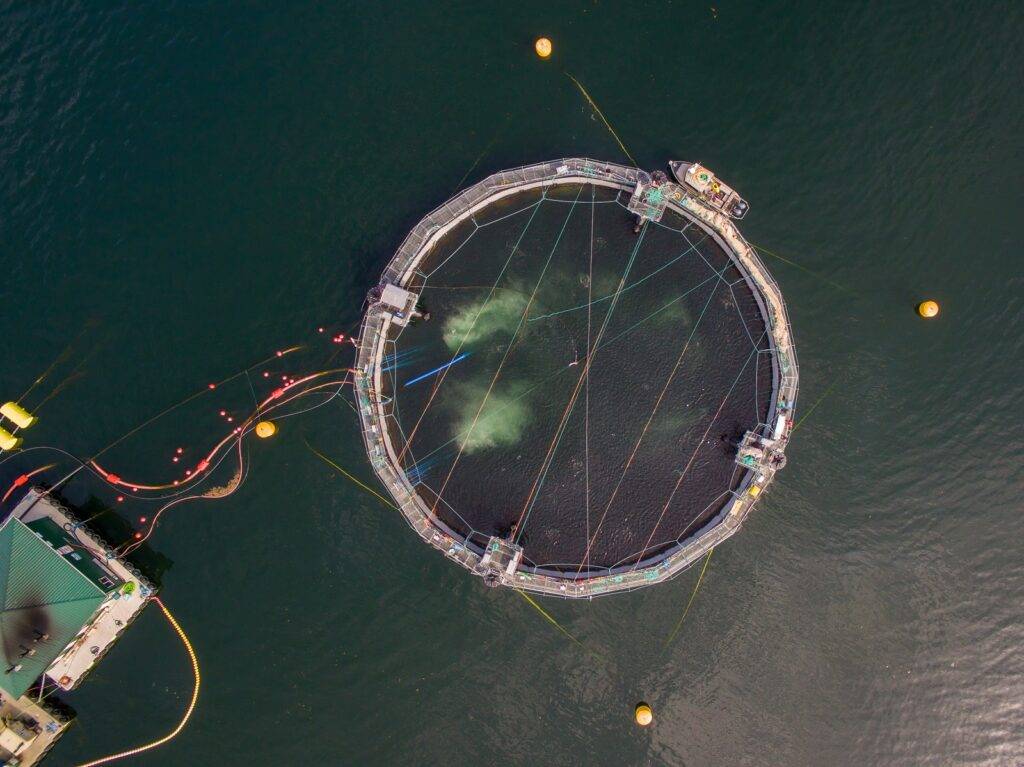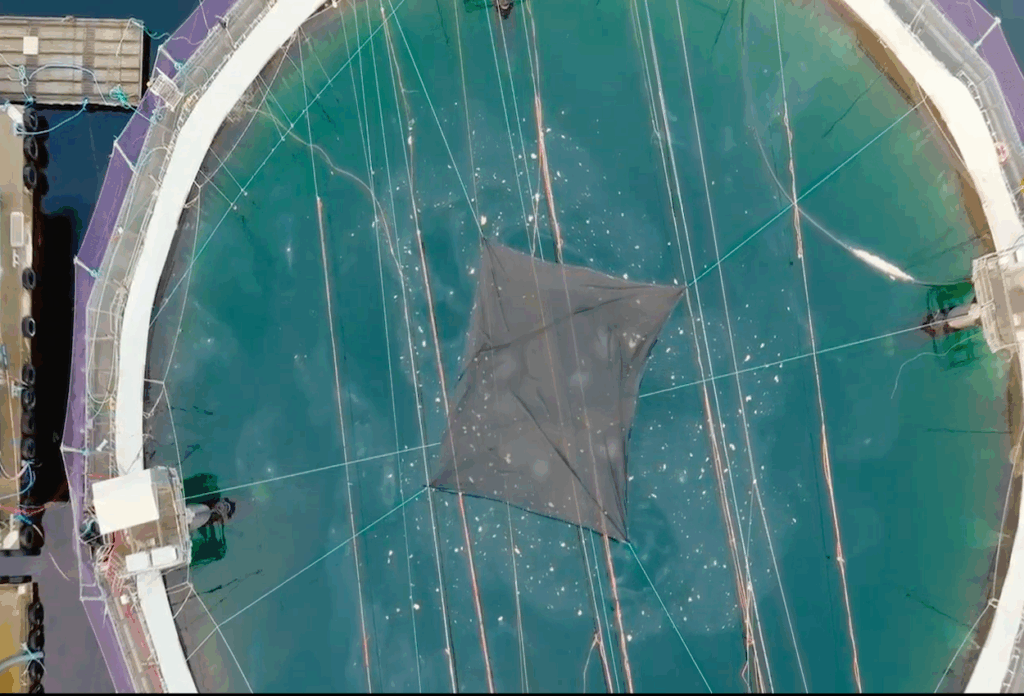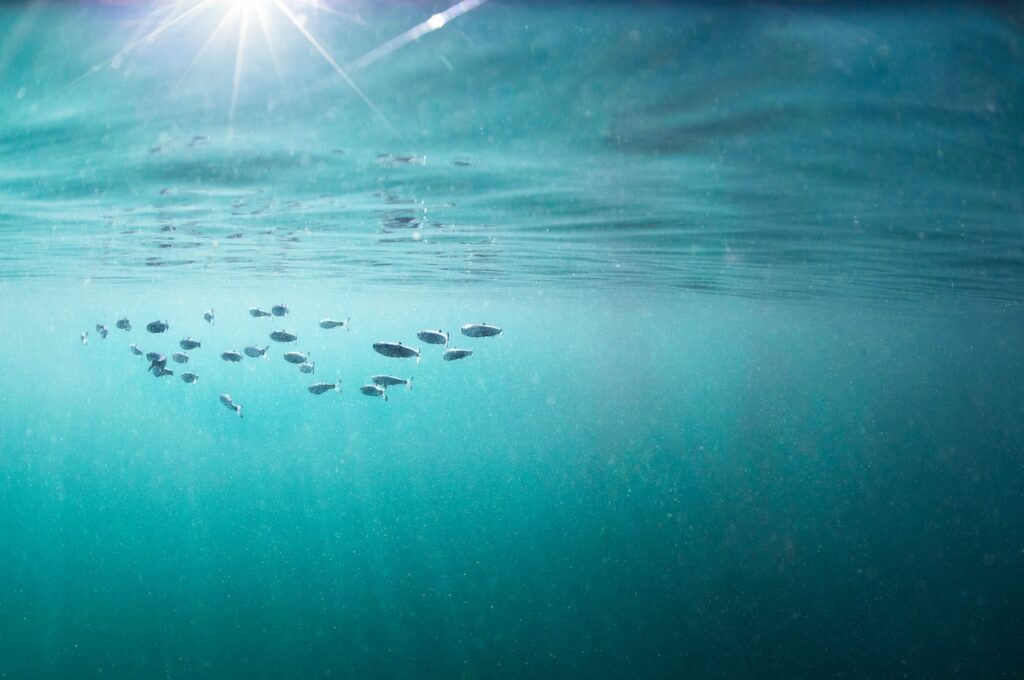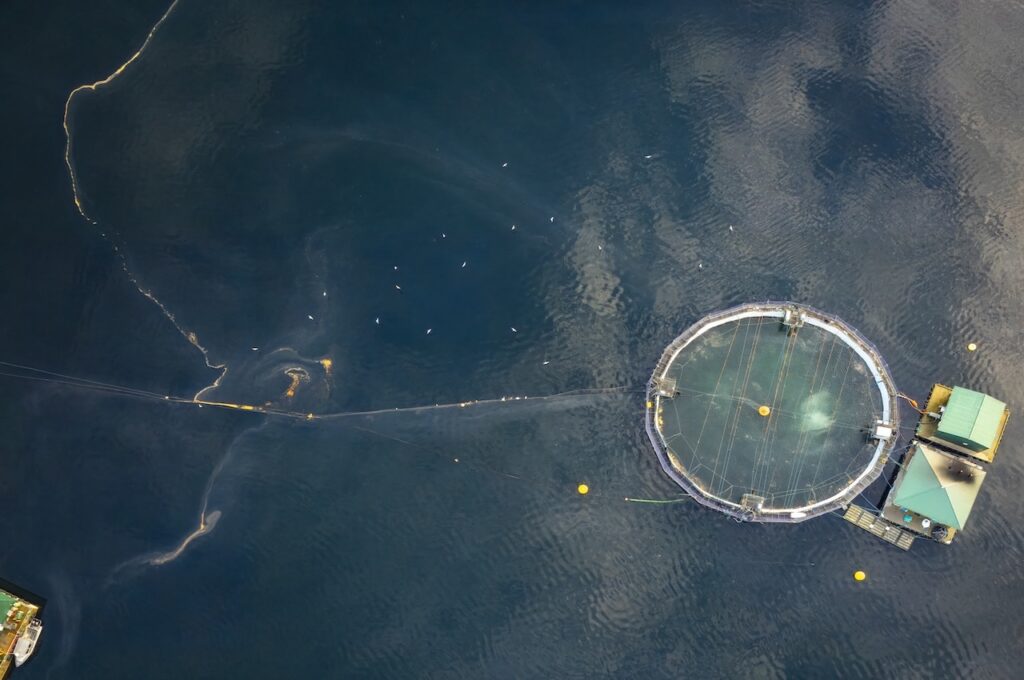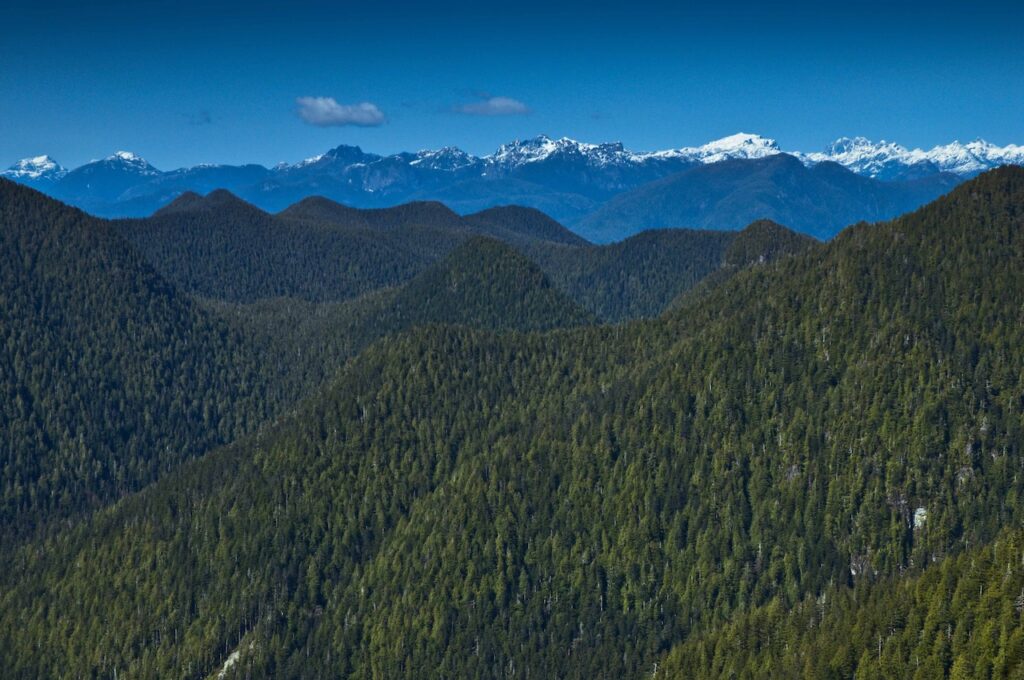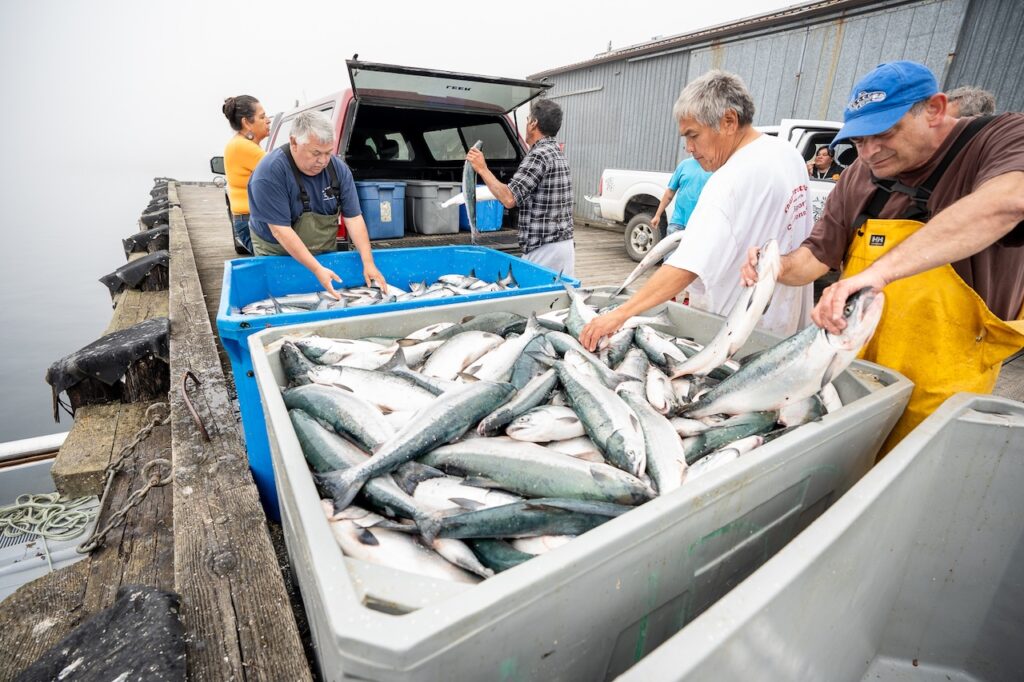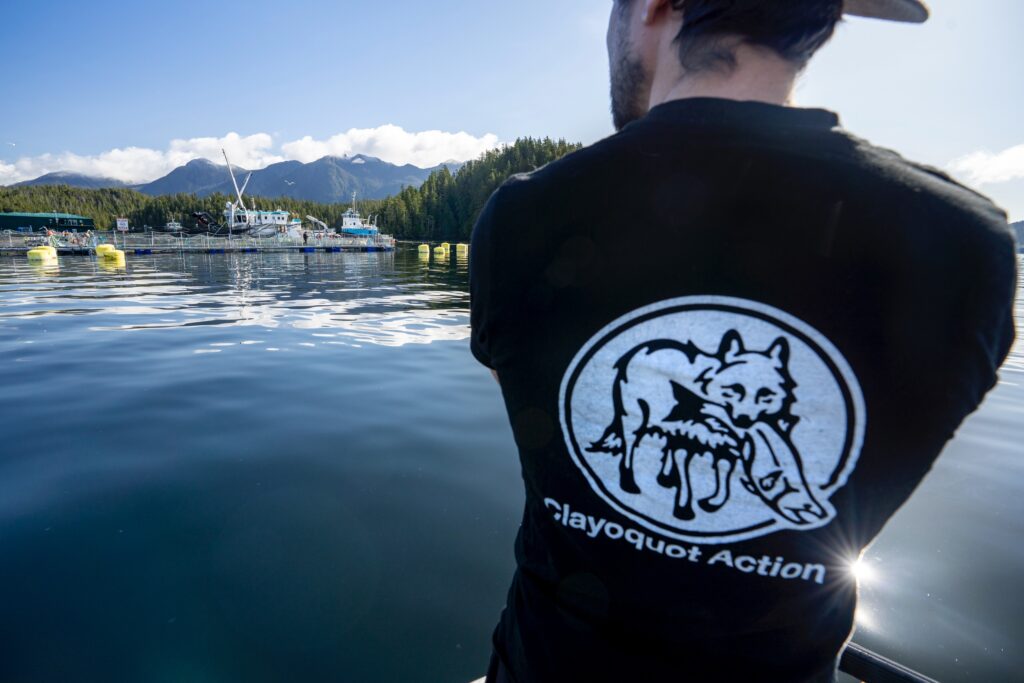Cermaq halted sea trials on their experimental Semi-Closed Containment system (SCCS) this fall. After operating the facility in Ahousaht Territory near Tofino for less than a year, Cermaq threw in the towel, citing “a technical fault and related fish welfare”. Cermaq states on their website: “SCCS is immature technology under development, therefore it is not surprising when you are trialing new technology you will run into challenges”.
Cermaq is clear that their experimental system is ‘semi-closed’ rather than closed containment. This is because the system is anything but closed. The SCCS pulls the equivalent volume of 7 Olympic-sized swimming pools into and out of the system—every hour. With no filtration, the system pumps out just as much viral load, salmon sewage, and decomposing fish (during die-offs) as a typical open-net pen.
Were jellyfish to blame?
Clayoquot Action has been observing Cermaq’s SCCS trial since it began in October 2020. We’ve been noticing die-offs at the facility since early April. Slicks of fat on the water surrounding the SCCS have been observed during die-offs—similar to those seen during die-offs at open-net pen facilities.
On one occasion the bay surrounding the system was absolutely packed with jellyfish. Is it possible jellyfish were pulled in and clogged the system? That would definitely affect fish health, as fish need freshly oxygenated water to breath…
Also, jellyfish can spread Tenacibaculum maritimum, which causes mouth rot. A study by Dr Kristi Miller-Saunders about mouth rot showed serious impacts on wild Fraser River sockeye, about which DFO commented: “results…highlight Tenacibaculum maritimum as one of the most likely candidates for population-level impacts on wild populations, and…infections in Fraser River sockeye may originate from salmon-farm sources…”.
There may have been other causes—Hazardous Algal Blooms (HABS) come to mind. HABs are occurring more frequently around the world due to warming ocean temperatures. They are also influenced by nutrient loading from salmon farms. Each salmon farm produces the equivalent sewage of a city of 150,000 people. And the semi-closed system is no exception—it too dumps raw sewage into the pristine waters of the Clayoquot Sound UNESCO Biosphere Region.
The technology is not ready
In order to protect wild salmon, the federal government announced in 2019 that they would transition salmon farms to closed containment by 2025. After making this promise, the federal government commissioned a study of closed containment technologies, which concluded in early 2020 that “floating closed containment requires 2-5 years of further review” (see page ii here). This has now been corroborated by Cermaq, who recently stated: ““Innovation takes time and successful innovation takes even longer”.
But wild salmon are on the brink of extinction—they don’t have time to wait.
Despite the federal government’s commitment to transition to closed containment by 2025, Cermaq seems unwilling to play ball. No doubt they hope to keep flushing their salmon sewage into the world’s oceans for free, as their semi-closed system allows them to do.
Get on the right path!
According to Cermaq, “Moving salmon away from conventional cages into closed containment is not a simple pathway and involves trials, technology improvement and operational maturation, and sometimes errors happen on the way to success.” But one thing is certain: Cermaq will never get to closed containment on land while continuing on a path which leads to semi-closed containment in the ocean. The Norwegian salmon farming industry needs to move with the times, and stop spending Canadian taxpayers’ dollars (three-quarters of a million dollars this time) trying to remain in the ocean.
Dan Lewis is Executive Director of Clayoquot Action.
